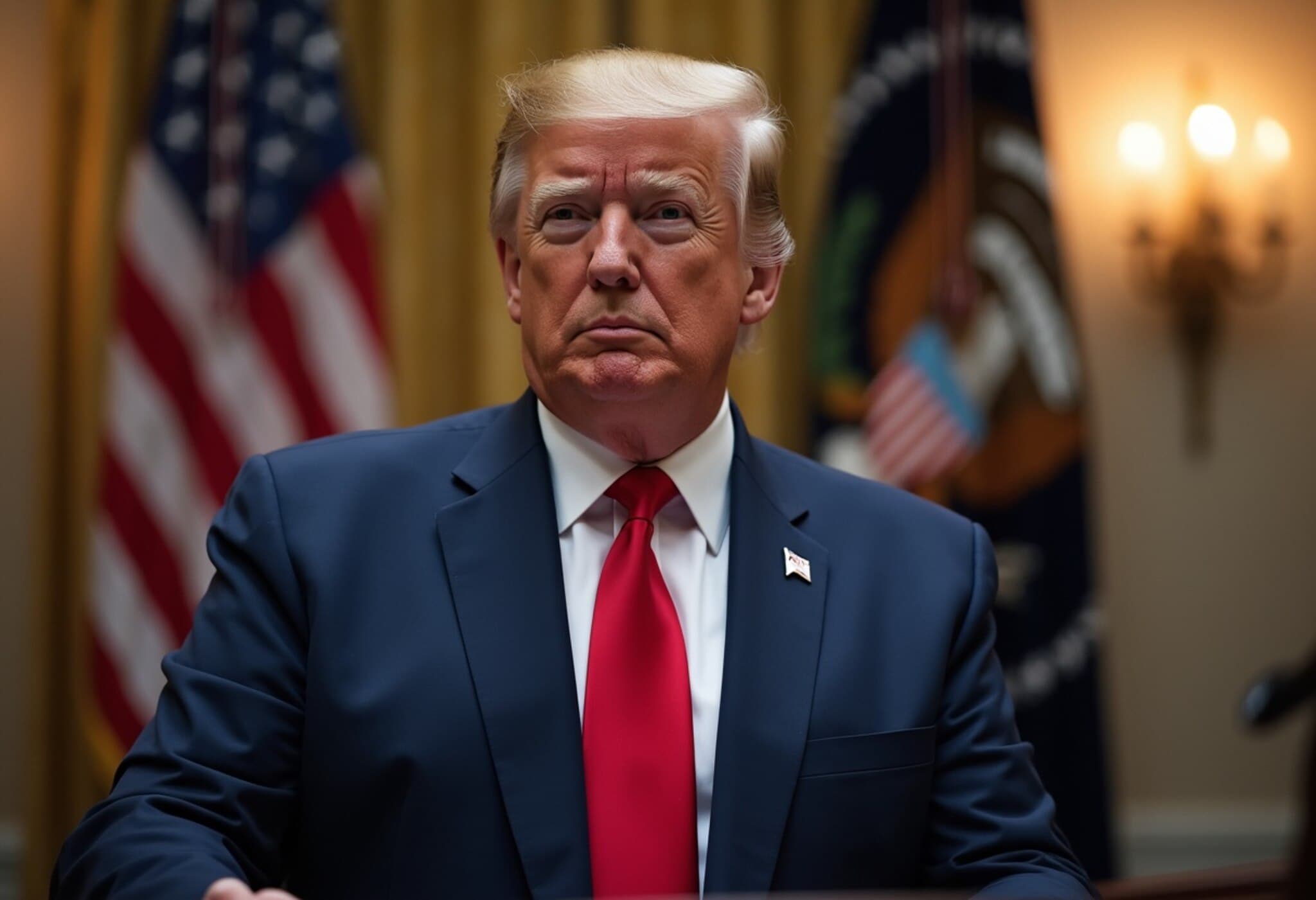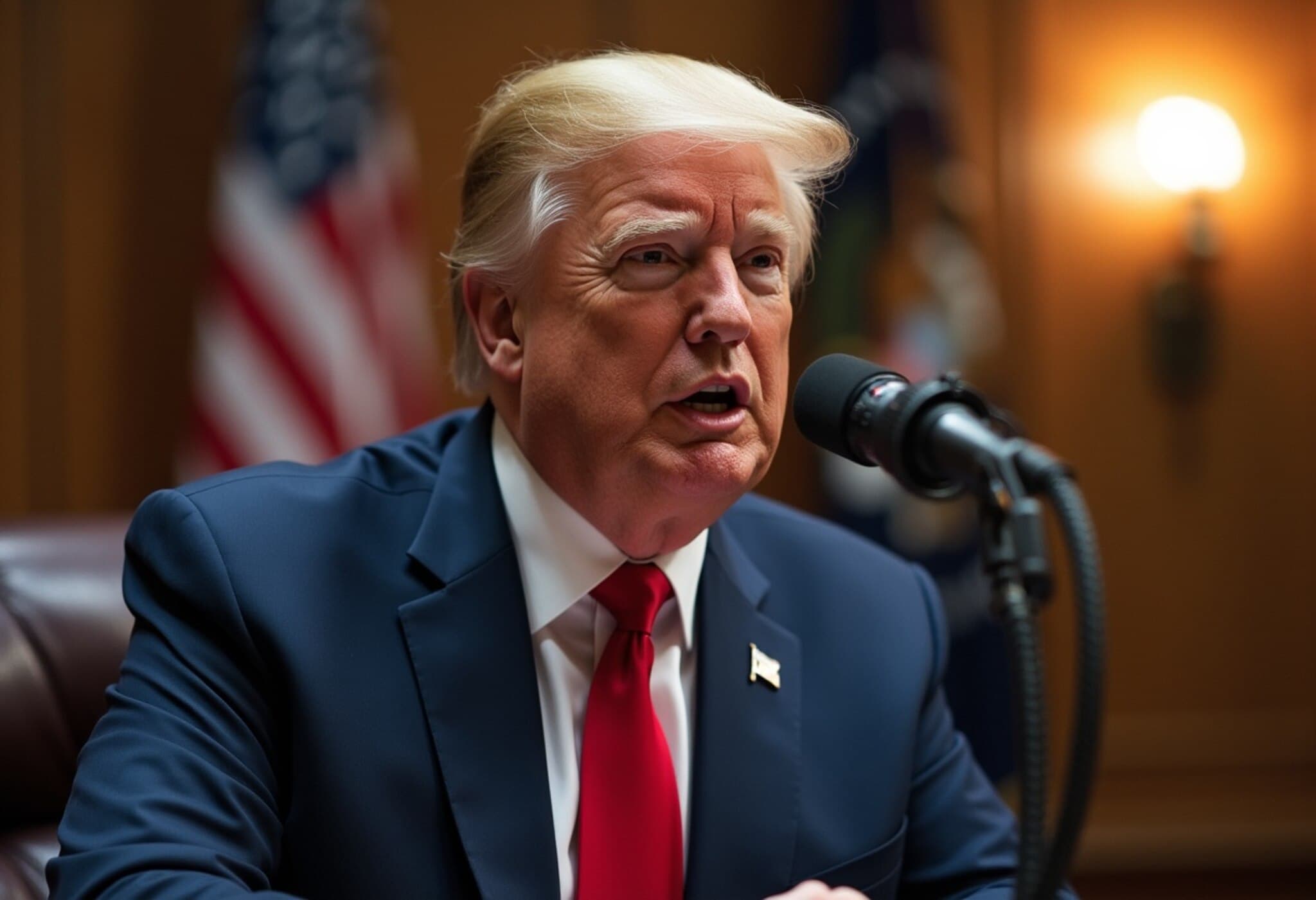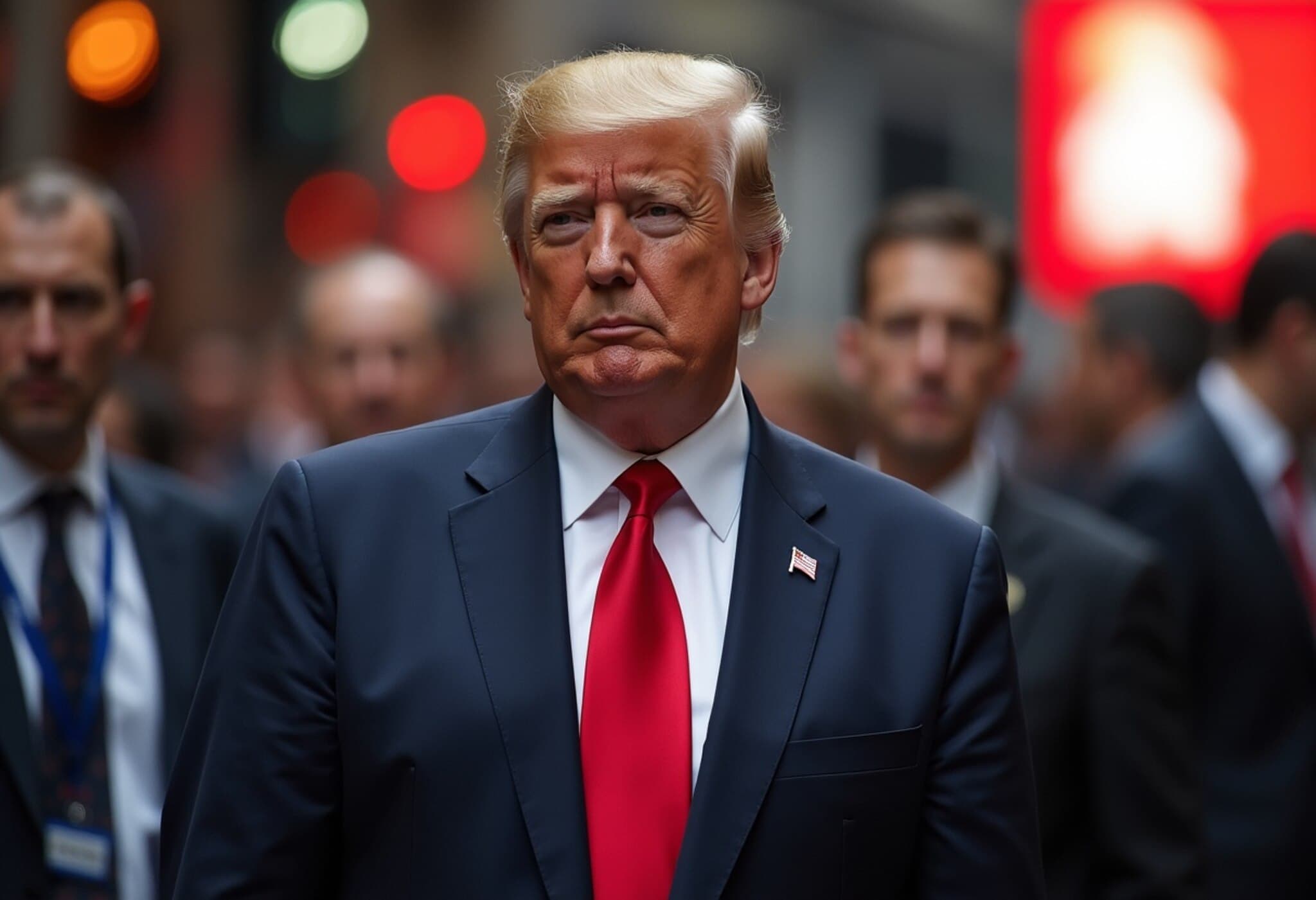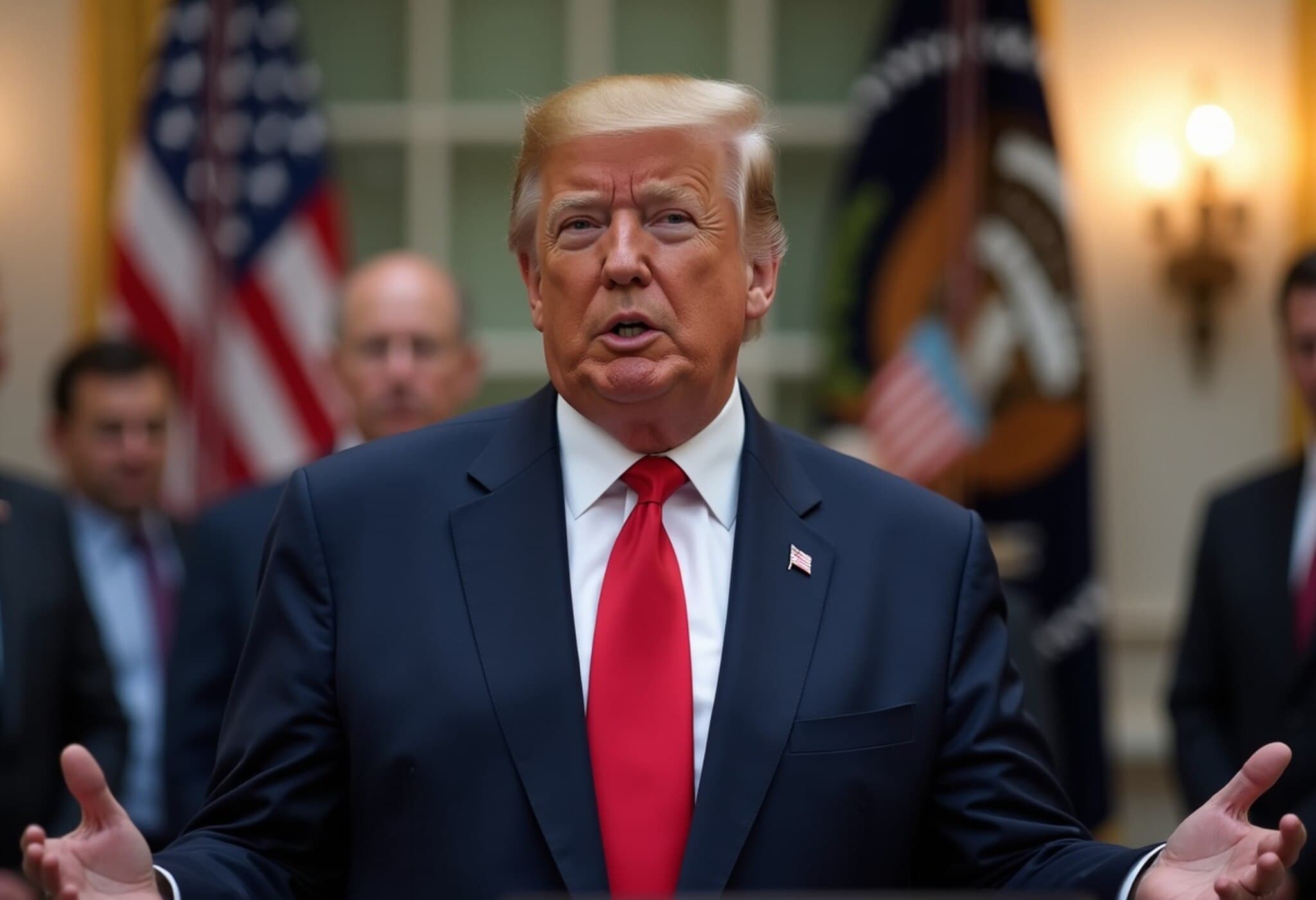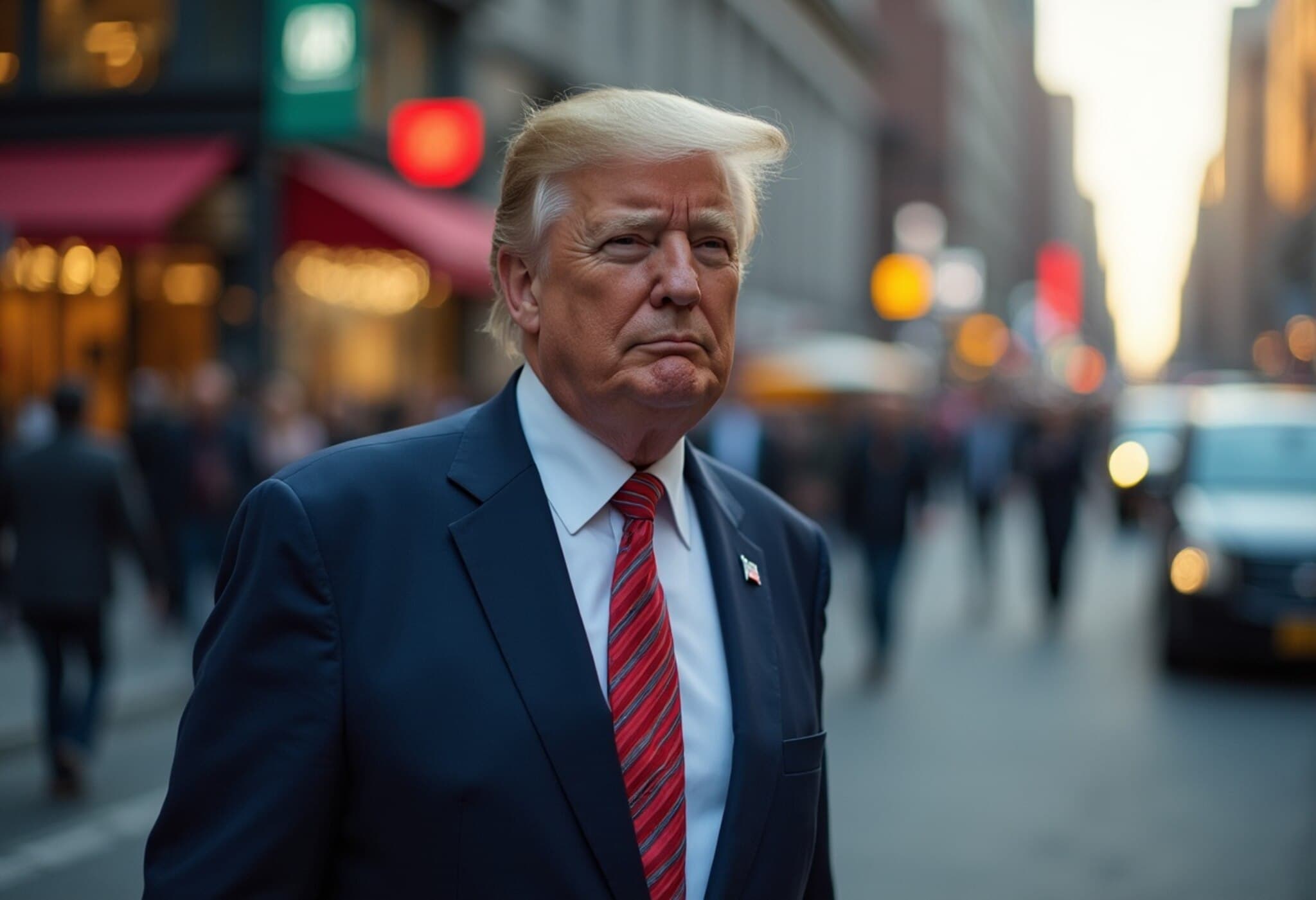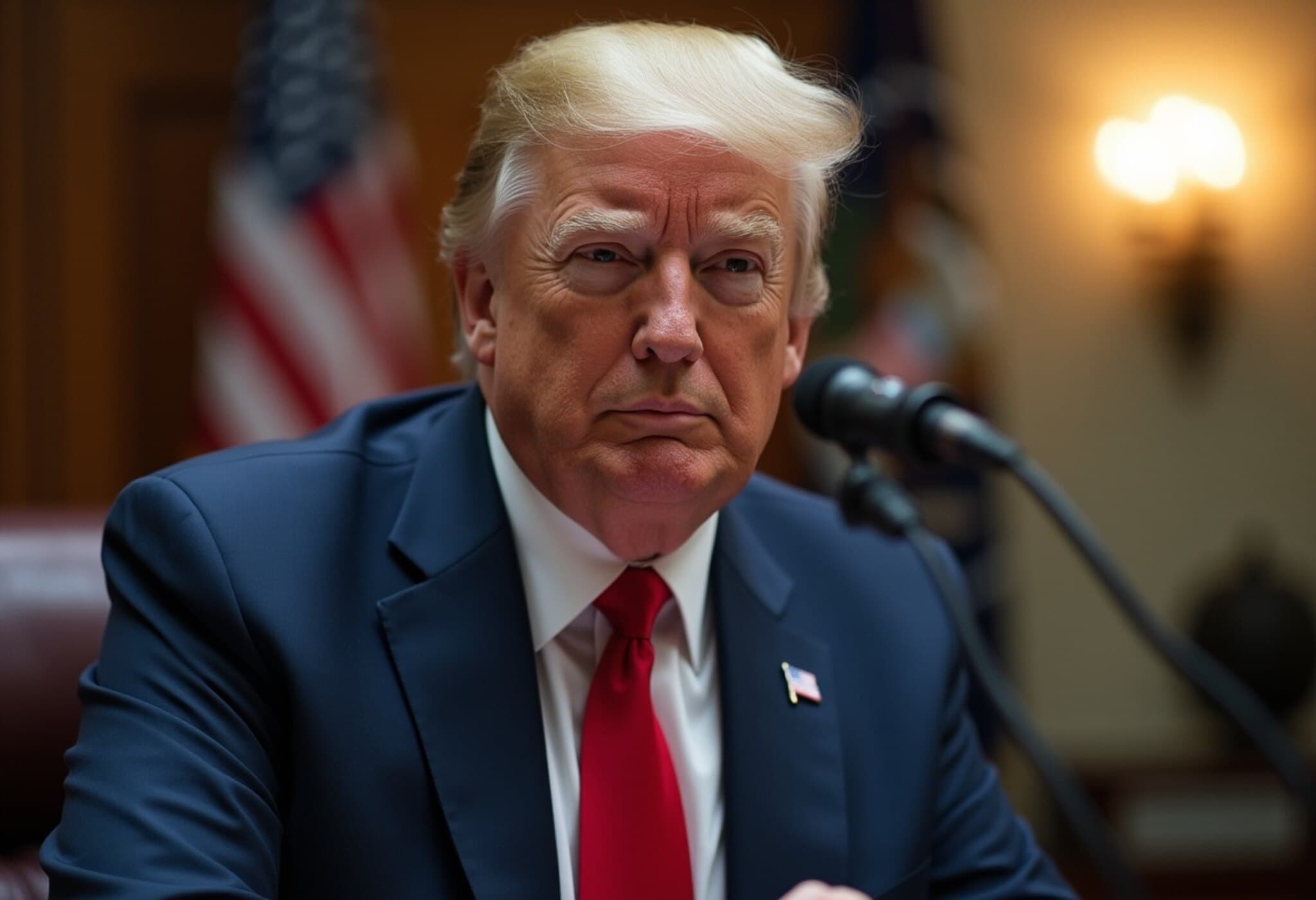Trump Signs Landmark GENIUS Act to Regulate Stablecoins
In a significant stride towards shaping the future of digital finance, President Donald Trump signed the Guiding and Establishing National Innovation for US Stablecoins Act (GENIUS Act) into law on Friday. This legislation establishes a regulatory framework for payment stablecoins—a cornerstone of the evolving cryptocurrency ecosystem—aiming to bolster American leadership in the global financial technology landscape.
A Bold Claim and a Historic Moment
During the signing ceremony, Trump infused his trademark bravado with humor, jokingly asserting, “The GENIUS Act — they named it after me. This is a hell of an act!” His rhetoric underscored the administration’s commitment to securing a dominant position for the United States in digital currency innovation.
Trump characterized the legislation as a “giant step” towards cementing American dominance in global finance and crypto technology. He praised industry pioneers and the resilient crypto community after years of skepticism and dismissals, calling the law’s passage a “massive validation” of their persistent efforts.
What the GENIUS Act Means for Stablecoins and Innovation
Stablecoins, digital tokens traditionally pegged to stable assets like the US dollar, have emerged as crucial players in the cryptocurrency space—facilitating quick payments and reducing volatility common to other cryptocurrencies such as Bitcoin or Ethereum.
The GENIUS Act lays down clear regulatory guidelines for dollar-backed stablecoins, intending to:
- Ensure consumer protections and financial stability.
- Promote transparency and oversight for stablecoin issuers.
- Encourage sustainable innovation in the digital payments sector.
Trump highlighted this move as potentially sparking “the greatest revolution in financial technology since the birth of the internet,” signaling a tectonic shift in how money could be managed and transacted in an increasingly digital economy.
Strong Opposition to Central Bank Digital Currency (CBDC)
Notably, President Trump reiterated his firm stance against a government-issued digital dollar or Central Bank Digital Currency, emphatically stating, “It won’t happen.” This opposition reflects a broader debate within US policy circles weighing financial innovation against risks related to privacy, government control, and monetary policy.
Treasury Secretary Applauds the Act’s Forward-Looking Vision
Treasury Secretary Scott Bessent took to X (formerly Twitter) to commend the legislation, lauding President Trump’s leadership and Senator Bill Hagerty’s contributions in shepherding the bill through Congress.
“Blockchain technologies will power the next generation of payments, and the US dollar is coming onchain... The GENIUS Act will help cement the US dollar as the global reserve currency for generations to come.”
This endorsement highlights the administration’s ambition to integrate cutting-edge blockchain technology while preserving the dollar’s status as the world’s primary reserve currency, a critical pillar underpinning US economic influence globally.
Contextual Insights: The US Financial Ecosystem and Crypto Regulation
As cryptocurrencies continue to mature, stablecoins’ potential to disrupt traditional banking and payment systems has raised alarm and opportunity in equal measure. The GENIUS Act places the US at the forefront of regulating this intersection, balancing innovation with prudence.
Experts argue that this legislation could serve as a blueprint for other nations grappling with similar challenges—combating illicit finance without stifling technological progress.
Underreported Considerations
- Impact on smaller crypto startups: Will increased regulation create barriers for innovation or provide necessary legitimacy?
- Privacy concerns: How will regulations balance transparency with user anonymity?
- International competitiveness: How might this affect US standing against emerging crypto hubs like Singapore or Switzerland?
Looking Ahead: What Does This Mean for Investors and Consumers?
With regulatory clarity on stablecoins, investors and everyday users might expect increased confidence and adoption, paving the way for more mainstream use of digital currencies in daily transactions.
However, caution remains essential as legal frameworks evolve and technological standards are tested in real-world applications.
Editor’s Note
The signing of the GENIUS Act marks a pivotal moment in US financial policy, reflecting a strategic embrace of cryptocurrency’s transformative potential while asserting firm boundaries. As this law takes effect, it invites vital dialogue about the future of money, privacy, and global economic leadership. Readers should watch closely how implementation unfolds—and what it signals for the delicate balance between innovation and regulation in an increasingly digital economy.

